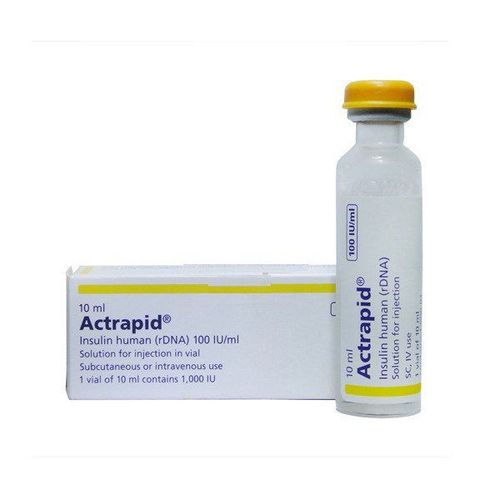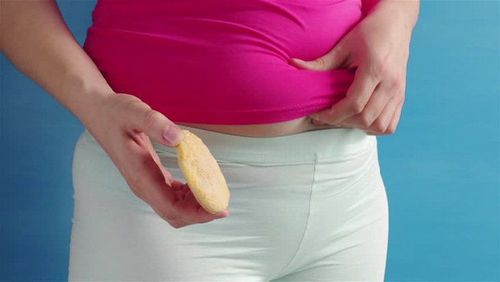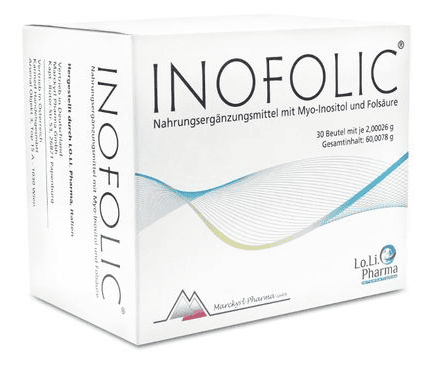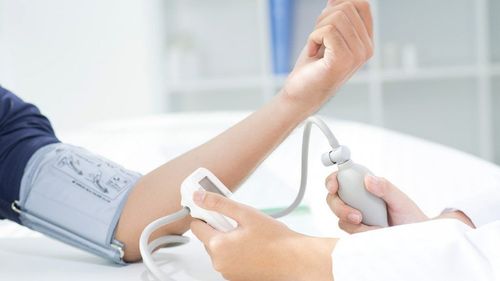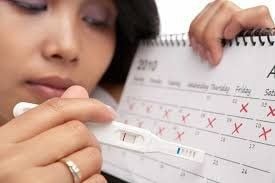This is an automatically translated article.
The article was professionally consulted by Specialist Doctor II Pham Thi Tuyet Mai - Obstetrician and Gynecologist - Department of Obstetrics and Gynecology - Vinmec Hai Phong International General Hospital.Polycystic ovary syndrome is a disease related to hormone imbalance in the female body. This syndrome not only affects fertility but also causes many other serious diseases in women.
1. What are the common signs and symptoms of polycystic ovaries?
Common signs and symptoms of PCOS include:
Irregular menstrual cycles: Menstrual irregularities may include long periods of absence of menstruation, number of menstrual days too long or too short, there are periods of too much or too little blood. Polycystic ovaries (PCOS) is one of the most common causes of female infertility. Obesity: Up to 80% of women with PCOS are obese.
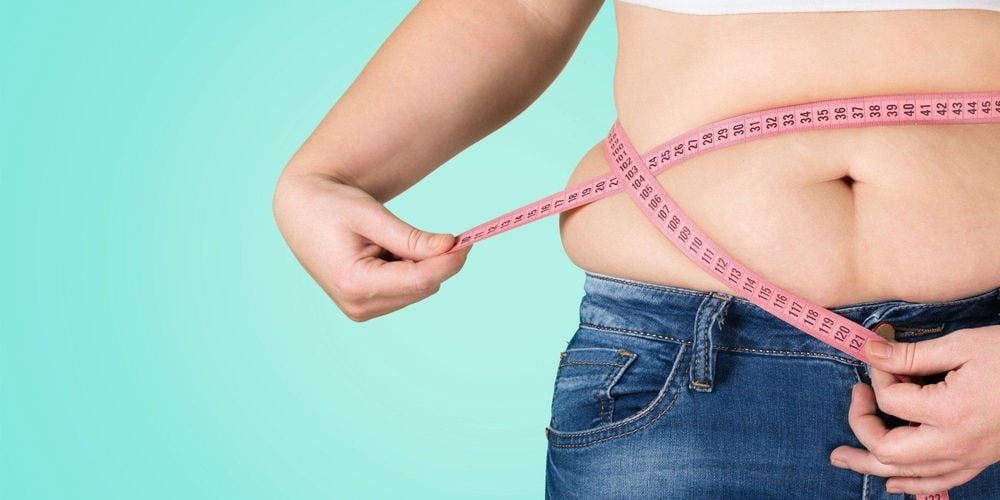
Overgrowth of hair on the face, chest, abdomen or upper thighs - known as hyperhidrosis, affects more than 70% of women with PCOS. Severe acne occurs after adolescence and does not respond to conventional treatments Oily skin Thick, smooth, and dark skin in areas with folds (armpits, neck, groin) - known as cystic acne thick layer of black spines. Many small fluid-filled sacs (cysts) in the ovaries
Trắc nghiệm: Bạn có hiểu đúng về dấu hiệu mang thai sớm?
Các dấu hiệu mang thai sớm không phải chỉ mỗi trễ kinh mà còn có rất nhiều dấu hiệu khác như xuất huyết âm đạo, ngực căng tức,… Điểm xem bạn biết được bao nhiêu dấu hiệu mang thai sớm thông qua bài trắc nghiệm này nhé!
2. What causes polycystic ovaries?
Although the cause of PCOS is not known, PCOS can be affected by many different factors. These factors include insulin resistance, increased levels of hormones called androgens, and irregular menstrual cycles.
In addition, some other causes are related such as:
Genetics: If your mother or sister has this syndrome, your risk of having this disease will be higher than that of the general population. Diet: A high-carbohydrate diet can also be a cause of the disease.
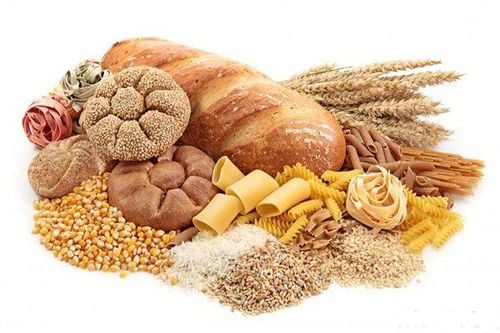
3. What is insulin resistance?
Insulin resistance is a condition in which the body's cells do not respond to the effects of insulin. When the body does not respond to insulin, the level of glucose in the blood increases. This can cause large amounts of insulin to remain produced while the body is trying to move glucose into cells. Insulin resistance can lead to diabetes. It can also be the cause of acanthosis nigricans.
4. What effect do high androgen levels have on the female body?
When the body produces a higher than normal amount of androgens, it can interfere with the ovaries in releasing an egg each month (called ovulation). High androgen levels also cause rapid hair growth and acne, which is seen in many women with PCOS.
5. What can irregular periods lead to?
Irregular menstrual cycles can lead to infertility and, in some women, can lead to overgrowth of cysts in the ovaries.
6. What are the health risks for women with PCOS?
PCOS affects all areas of the body, not just the reproductive system. It increases a woman's risk of disease, which in more severe cases can cause lifelong illnesses.
Insulin resistance increases the risk of type 2 diabetes and cardiovascular disease. Another phenomenon that is associated with PCOS is metabolic syndrome. This syndrome contributes to both diabetes and heart disease.
Women with PCOS also tend to have endometrial hyperplasia, which causes the lining of the uterus to become too thick. This condition increases the risk of endometrial cancer.
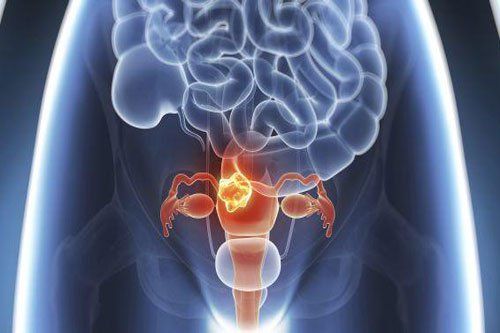
7. Are there any possible treatments for women with PCOS?
A variety of treatments can potentially solve PCOS problems. Treatments are different for each person, depending on the symptoms, other health problems involved, and your desire to get pregnant.
8. Can combined hormonal contraceptives be used to treat women with PCOS?
Combined hormonal contraceptives can be used for long-term treatment in women with PCOS who do not want to become pregnant. Combination hormonal pills contain both estrogen and progestin. These birth control pills help regulate the menstrual cycle and reduce hair growth and acne by reducing androgen levels. They also reduce the risk of endometrial cancer.
9. What are the effects of weight loss for women with PCOS?
For overweight women, weight loss is often by adjusting the menstrual cycle. Losing weight also works to improve cholesterol and insulin levels, reducing symptoms like hair growth and acne.

10. What are the effects of insulin-sensitive drugs in the treatment of women with PCOS?
Insulin-sensitizing drugs used to treat diabetes are also frequently used in the treatment of PCOS. These drugs help the body respond to insulin. In women with PCOS, the drug reduces androgen levels and improves ovulation. Restoring ovulation helps to make menstrual cycles more regular and predictable.
11. What can be done to increase the chances of pregnancy for women with PCOS?
Successful ovulation is the first step to pregnancy. For overweight women, weight loss often helps accomplish this goal. Medications may also be used to induce ovulation. Ovarian surgery is a last resort used when other treatments have not worked. However, the long-term effects of these methods are yet to be proven.
Weight loss: Build a diet rich in fiber, vitamins, low in starch and sugar. Exercise regularly, avoid stress, limit staying up late. Ovulation Stimulators: There are many different types of medications, from oral to injectable, that can help women who want to become pregnant. Surgery: Reduces male hormones and enhances ovulation. This method only works temporarily, about 50% of women get pregnant 1 year after surgery.
Please dial HOTLINE for more information or register for an appointment HERE. Download MyVinmec app to make appointments faster and to manage your bookings easily.
Articles refer to the source Acog.org




